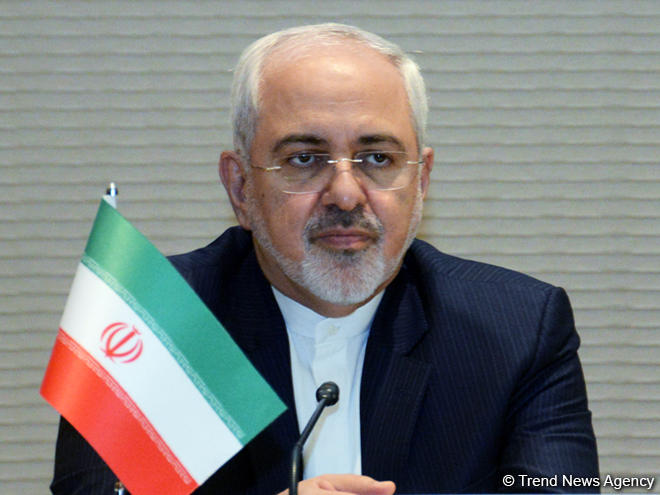BAKU, Azerbaijan, Jan. 20
By Elnur Baghishov - Trend:
Iran will leave the Non-Proliferation Treaty (NPT) if Europeans insist on their unjustifiable behavior or refer the nuclear issue to the UN Security Council, Iranian Foreign Minister Mohammad Javad Zarif said, Trend reports via IRNA.
Zarif noted that Iran is following up the late decision by European states to trigger the Dispute Resolution Mechanism in the context of the Joint Comprehensive Plan of Action (JCPOA, a.k.a. nuclear deal), adding that Tehran officially started the discussion on the mechanism on May 8, 2018 when the US withdrew from the deal.
The minister underlined that Iran sent three letters dated May 10, August 26 and November 2018 to the then EU foreign policy chief Federica Mogherini, announcing in the latter that Iran had officially triggered and ended the dispute resolution mechanism and thus would begin reducing its commitments to the JCPOA.
However, Iran gave a seven-month opportunity to the EU before the country began reducing its commitments in May 8, 2019 which had operational effects two months later, Zarif added.
The minister stressed that all the steps are reversible if the European parties to the JCPOA restore their obligations under the deal.
On Jan. 14, 2020, the UK, France and Germany issued a statement regarding Iran's suspension of its obligations within JCPOA and announced that they launched a process to resolve nuclear disputes. If problems are not solved in this process, the matter will be discussed at the UN Security Council’s meeting.
In January 2016, JCPOA was launched between Iran and the P5+1 group (US, Russia, China, UK, France and Germany) in connection with Iran's nuclear program. In May 2018, the US announced its withdrawal from the deal and imposed sanctions against Iran in November of the same year.
In order to preserve the agreements reached as part of the JCPOA, the European signatories of the deal stated in January 2019 that a financial mechanism for maintaining trade with Iran called INSTEX was formed.
On May 8, 2019, Iran announced that it had ceased fulfilling its commitments regarding the sale of over 300 kilograms of uranium, as stated in the deal, basing its decision on the other signatories having not fulfilled their obligations. On July 7, Iran announced that it will not be fulfilling its commitments regarding the enrichment of uranium at 3.67 percent and the reconstruction of the Arak Heavy Water Reactor Facility as stated in the deal.
On Sept. 5, Iran announced that it will enrich uranium using next-generation centrifuges and will not mix it with the enriched uranium residues as part of the third step of reducing commitments in JCPOA.
On Nov. 5, 2019, Iran announced that it took the fourth step in connection with reducing its commitments to the nuclear agreement. So, uranium gas is being pumped to the centrifuges at the Fordow Fuel Enrichment Plant.
Iran took the last fifth step in reducing the number of its commitments within JCPOA. Iran no longer faces any restrictions on its nuclear program.






